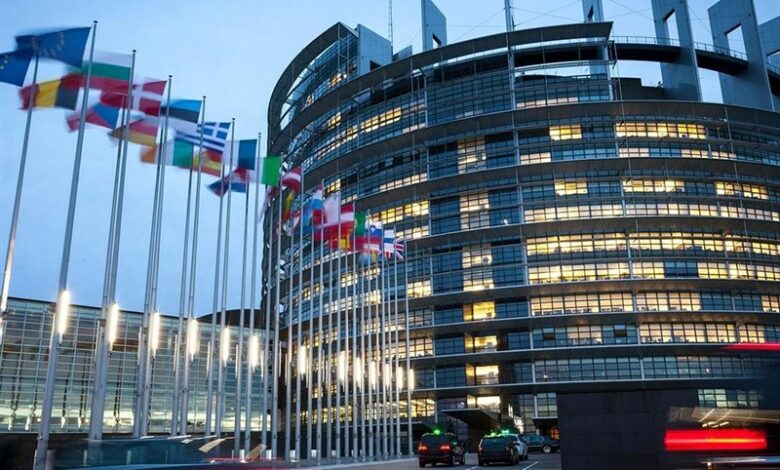The danger of trending to the extreme right in 2024 awaits the European Parliament

| According to polls, according to the rise of extreme right-wing parties in many European countries, a western publication reported the increasing danger of extreme right-wing tendencies in the European Parliament in the upcoming elections this year. |
According to the report of Tasnim International News Group, the German newspaper Hamburger Abend Blatt in an article addressed the danger of trending towards the extreme right after the European Parliament elections in 2024 for this union and wrote: Extreme right parties can be among The winners of the European elections will be impressive and the consequences of this scenario will be significant for Brussels.
Ahead of the European elections on June 9, Joseph Borrell, the EU’s top diplomat, has sent an urgent warning message to European citizens. . The European Union’s foreign policy official has announced that the vote on the distribution of seats in the European Parliament can be as decisive as the US presidential election five months later.
His biggest concern is a possible shift to the right It is Europe: Burrell said that the citizens of this continent are afraid of multiple crises. However, according to him, based on all experiences, fear and uncertainty can lead to more popularity of right-wing populist parties.
But Borrell is not the only European official who warns about the change and tendency to the right. Gives. Prominent members of the European Union Parliament are currently talking about a “decisive election” for Europe.
Frank Dekker, a researcher of the Bonn party, has stated in an interview: We must assume that the right-wing parties They will experience more growth in European elections. European elections have a decisive role for domestic politics, and this could, for example, favor the extreme party Alternative for Germany.
According to a survey conducted by the European Union in all 27 member states, the vote Voters in this vote are less influenced by European policy issues, but look at their economic situation and concerns about the future.
According to the latest Eurobarometer survey, three quarters of EU citizens expect Their living standards are decreasing and a third of them are having trouble paying bills. The only question now is how much this uncertainty will really strengthen the forces of the right. So far, all polls have predicted a significant rise for these parties.
In the newly elected European Parliament, the two right-wing parties Identity and Democracy (ID), which also includes representatives from Germany’s far-right party, and the conservatives and The European Reformists (ECR), which includes the Prime Minister’s far-right Brothers of Italy, is currently projected to win 175 of the 720 seats. Together with the seats of the ruling Hungarian Fidesz party, the right wing is likely to win more than a quarter of the seats. This is enough for disruptive maneuvers in parliament – but right-wing populists and far-right extremists are still far from having creative power.
Of course, the success of these parties in EU countries is likely to be more important than the increase. Their mandate will be in the EU parliament: polls put the far-right Alternative for Germany’s vote in the European elections at 23-25 percent – which would shake up German domestic politics more than Europe. In France, Marine Le Pen’s right-wing party Rassemblement National (RN) will probably become the strongest party.
The social democrats and liberals and especially the greens will have to accept more losses. This can change the balance of power in the European Parliament: the Christian Democrats are tired of working with the Social Democrats and the Liberals and are looking for new majorities. June faces a shift to the right. A look at the current political map of Europe does not show a different result. In many EU countries, not only conservative parties, but even right-wing nationalist parties are on the rise. In Sweden and Finland, right-wing populists are in government as Christian Democratic junior partners, in Italy the post-fascist Giorgia Meloni is at the helm, and in the Netherlands, right-wing Geert Wilders recently won an election. In France, the polls consider Marine Le Pen’s right-wing party to be the strongest force in the European elections. In Germany, too, the far-right Alternative for Germany party is on the rise, garnering more than 20 percent of the vote in polls.
It is expected that with the right-wing populists gaining strength, the tone of the parliament will be Especially when it comes to issues like immigration. The constant discussion of reviving increased cooperation and deepening of the European Union or moving towards a “Europe with fatherlands” is also becoming more heated. Stop “rabbit vs. snake” and focus on solving urgent problems. This German liberal concludes: whoever solves the problems minimizes the extremists.
end of message/
| Publisher | Tasnim News |


